#speech act
Text
It's cool to have had a tumblr blog for so long that I can post any old bullshit and like 10 of you guys will give me a consolation tug on my cock in the form of a like, but the downside is that I can't be anonymously insane on here anymore. A bunch of you guys know what I smell like and might ask me if I'm okay to my face
2K notes
·
View notes
Text
Link is Hyrulean Elon Musk. Always building electric vehicles, goes to space, rockets etc. He's got neuralinks to all these divine beings. the depths that's the boring company. Link is in-game canonically the richest person in Hyrule and he traffics in all these alternative currencyies
43 notes
·
View notes
Text
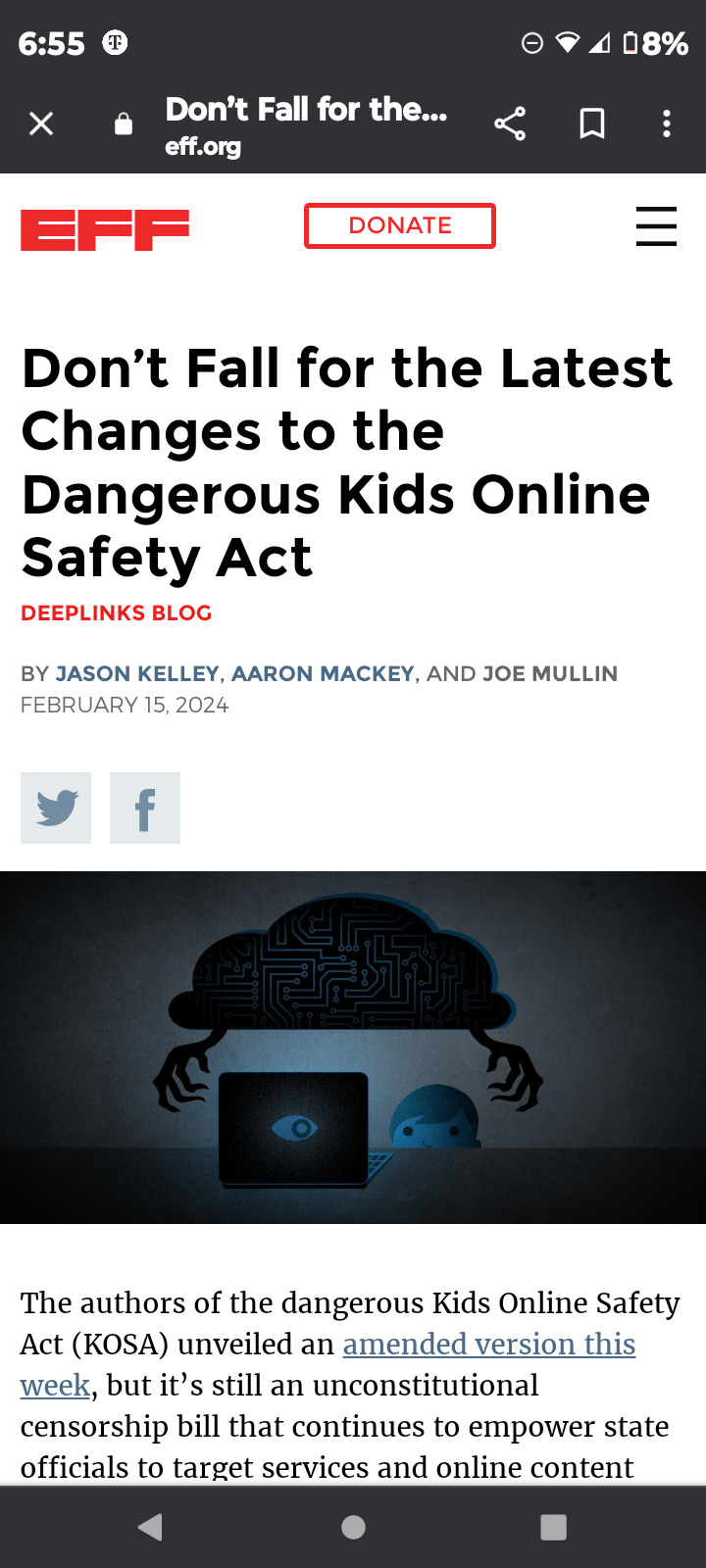
If you wanna protect AO3 or character ai. Or Wattpad. Or Tumblr. Or discord. Or even the right for undocumented people and minors to use the fucking Internet reblog this I swear to God. Reblog this and reblog as many KOSA posts as you can go on their website and contact your Representatives. Do it. Do it. Do it.
#stop kosa#kosa#kids online safety act#internet freedom#pro ao3#ao3#lgbtq#free speech#anti censorship
30K notes
·
View notes
Text
When I think about it, the world of online discourse exists to take facts and turn them into material for jokes. Sometimes the jokes are not funny and not intended to be and the person posting doesn’t consider them to be a joke. But in some formal sense I think any short social media post about any current event is a joke. Whether sincere or moralistic or antagonistic or anything else. If it’s a tweet or an Instagram post or any of the rest, it’s just—a joke. You know? Everybody’s tossing off zingers. Even if they’re trying to do something else.
-B. D. McClay
#b.d. mcclay#online#twitter#speech act#joke#humor#social media#speech act theory#discourse#discourse machine#posting
0 notes
Text

Republicans nuked KOSA. Its considered DOA and wont be showing up at the house. This is good news certanly but its not entirely over. This bill got bipartisan support back in the senate, dickheads from both sides thought the idea behind kosa was worth doing, its just that the republican party decided to nuke it for reasons im trying to figure out? To try to deny a win for democrats similar to how they stopped a cancer research bill?
Something like kosa will pop up again, kosa itself may just rise from the grave and we'll have to go through this same song and dance so all i can say is stay informed on this type of shit. Inform your senators and reps not to support this shit and if they dont oppose it, vote them out in the next election they're running in.
There are bills that do in fact regulate the internet in a way that helps but also doesnt violate free speech by targeting how data is harvested. Thise bills should be pushed while censorship should die. For now, celebrate this day. KOSA atm is dead, done so in a manner so anticlimatic yet deserving. But be vigilant.
#kosa#stop kosa#kosa bill#kids online safety bill#kids online safety act#bad internet bills#us politics#internet censorship#internet freedom#free speech#freedom of speech#artists on tumblr#writers on tumblr#photographers on tumblr#fandom#fanart#fanfiction#art#illustration#photography#lgbtq#gay#lesbian#pansexual#asexual#bisexual#transgender#queer#lgbtq community#queer community
3K notes
·
View notes
Text
Just a gentle reminder
The Heritage Foundation have outright admitted they intend for """The Kids Online Safety Act""" to be weaponized against LGBTQ+/abortion information and any form of sexual expression on the internet, that is IF the drump wins the election in November.
KOSA very recently passed the "mark up" stage in the House Committee on Energy & Commerce, and now, according to the EFF, the bill is being considered in the US House this week. So now is the perfect time to call/pester your house representatives to shoot this unconstitutional bill down for good.
If you're unsure of how to contact and make your piece known to your House representatives, here's a handy resources guide, complete with call scripts written specifically for democrats and republicans!
Make no mistake, this bill will not just affect millions of people in the states, this will also affect the wider web across the world. So for international folk, you can also sign the petition here!
I believe taking these actions may end up working, because even House representatives are beginning to doubt this bill is in anyway a good thing actually. All we have to do now is pile on the pressure!
There is no sugar coating this bill, and more and more people are starting to see it for what it is; KOSA is a trojan horse for internet censorship.
Call your representatives and demand they kill it once and for all.
#StopKOSA#Stop KOSA#Freedom of Speech#Freedom of Expression#Kill The Bill#Kids Online Safety Act#Internet Censorship#Signal Boost#Spread the Word
2K notes
·
View notes
Text
People do not talk enough about how amazing Lae'zels voice acting is. Devora Wilde put her whole ass pussy into some of those lines but nobody pays attention and calls laezel one note and angry. But have you listened? Have you heard her voice shake as she cries "what good - this heart of stone - for it to be shattered?" Have you heard the conviction where she declares that Vlaketh has sinned against her? Have you listened to the fear in her voice, the slight tremble when she is talking of becoming a mindflayer and the way that she has utter awe in her tones when she experiences something that is truly spiritual to her? Like. It's such a subtle and great performance.
#bg3#lae'zel#the other voice actors are also incredible#wylls voice actor creates the charming prince so easily#but still manages the tough moments#karlachs act 3 gortash dead speech and the pain in that???#astarion gets all the praise anyway i dont gotta mention him#and gale and SHADOWHEART#god#such good performances in this game
8K notes
·
View notes
Text
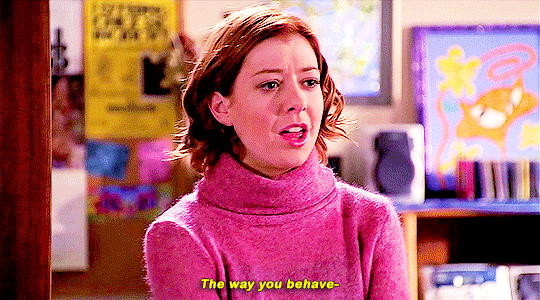

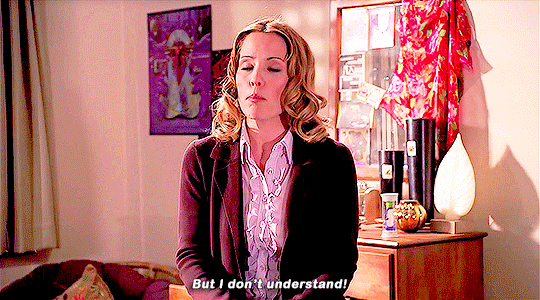
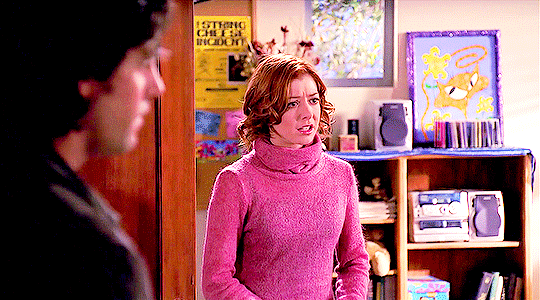

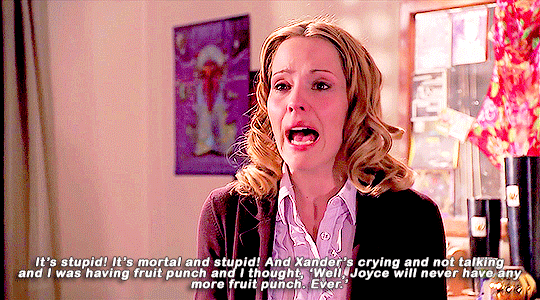

BUFFY THE VAMPIRE SLAYER
5x16 | “The Body”
#btvs#btvsedit#buffythevampireslayeredit#buffy the vampire slayer#anya jenkins#willow rosenberg#creations#buffyseries#buffysource#dailybtvs#this episode is unspeakably moving#like as far as explorations of grief i truly cannot fathom another episode like it#in anything#anya's speech here is such a heartwrenching grapple with mortality#and not pictured but SMG's acting in this whole episode is crazy
2K notes
·
View notes
Text
Senate Bill 686 of the 118th Congress (The Restrict Act)
I’m honestly a bit disappointed here at Tumblr for not talking about this bill more, so I’m going to share what I’ve learned about it with you all
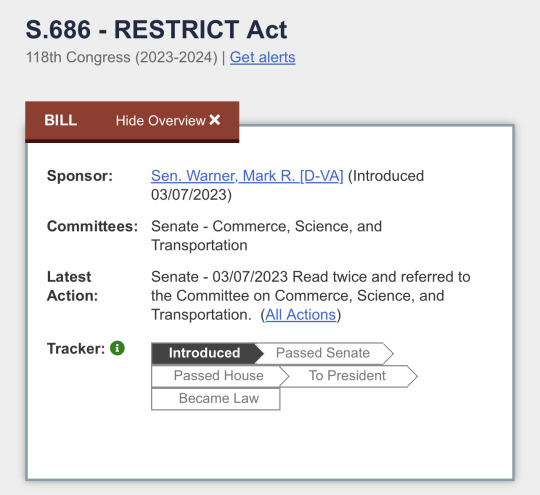
The link above goes to a pdf file going over the entire bill that has only been introduced atm as shown in the image just above from congress.gov.
Now, people only see this as a means to ban Tiktok, but that’s just the mask this truly cruel bill is hiding behind.
To boil it all down, this bill lets the Secretary of Commerce to have the power to ban…basically ANYTHING on the internet.
This includes hardware like video game consoles or Wifi networks as well as software and applications such as VPNs.
It also gives the government the power to monitor, basically everything you do online, private messages, posts on social media, streams, you name it, they can monitor it.
And the punishment for using, say, a VPN to access Tiktok, will result in 20 years in prison with a 1/4 million fine, a full million if you did it on purpose.
Now, I please ask you all to go to your representatives and tell them about how you don’t want this bill to be passed whatsoever. Heck, if you have to, (passively) threaten them with supporting their opponent in the next primary in any way they can. Just remember to be respectful and civil.
If you don’t want to do that, I respect that decision, and I understand that you wouldn’t want to deal with politics. But, I at least ask you to signal boost this post by reblogging it to your own followers and give any other thoughts about this that you might have in the tags or just normally.
I don’t want this lovable hellsite we all call home and made such good friends and memories on to be under the eyes of those pedophilic heathens who can’t seem to even know how to unlock a smartphone.
I thank you all for reading this, and I hope you all have a good day/night.
#us politics#usa#restrict act#senate 686#tiktok#tiktok ban#tumblr#internet#first amendment#freedom of speech#pls share
6K notes
·
View notes
Text
Copyright takedowns are a cautionary tale that few are heeding
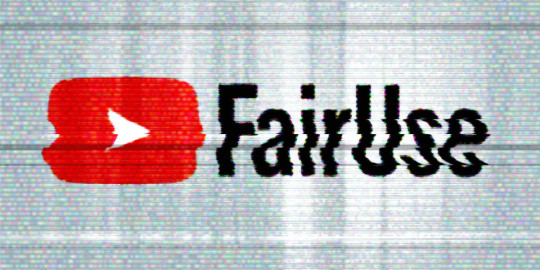
On July 14, I'm giving the closing keynote for the fifteenth HACKERS ON PLANET EARTH, in QUEENS, NY. Happy Bastille Day! On July 20, I'm appearing in CHICAGO at Exile in Bookville.

We're living through one of those moments when millions of people become suddenly and overwhelmingly interested in fair use, one of the subtlest and worst-understood aspects of copyright law. It's not a subject you can master by skimming a Wikipedia article!
I've been talking about fair use with laypeople for more than 20 years. I've met so many people who possess the unshakable, serene confidence of the truly wrong, like the people who think fair use means you can take x words from a book, or y seconds from a song and it will always be fair, while anything more will never be.
Or the people who think that if you violate any of the four factors, your use can't be fair – or the people who think that if you fail all of the four factors, you must be infringing (people, the Supreme Court is calling and they want to tell you about the Betamax!).
You might think that you can never quote a song lyric in a book without infringing copyright, or that you must clear every musical sample. You might be rock solid certain that scraping the web to train an AI is infringing. If you hold those beliefs, you do not understand the "fact intensive" nature of fair use.
But you can learn! It's actually a really cool and interesting and gnarly subject, and it's a favorite of copyright scholars, who have really fascinating disagreements and discussions about the subject. These discussions often key off of the controversies of the moment, but inevitably they implicate earlier fights about everything from the piano roll to 2 Live Crew to antiracist retellings of Gone With the Wind.
One of the most interesting discussions of fair use you can ask for took place in 2019, when the NYU Engelberg Center on Innovation Law & Policy held a symposium called "Proving IP." One of the panels featured dueling musicologists debating the merits of the Blurred Lines case. That case marked a turning point in music copyright, with the Marvin Gaye estate successfully suing Robin Thicke and Pharrell Williams for copying the "vibe" of Gaye's "Got to Give it Up."
Naturally, this discussion featured clips from both songs as the experts – joined by some of America's top copyright scholars – delved into the legal reasoning and future consequences of the case. It would be literally impossible to discuss this case without those clips.
And that's where the problems start: as soon as the symposium was uploaded to Youtube, it was flagged and removed by Content ID, Google's $100,000,000 copyright enforcement system. This initial takedown was fully automated, which is how Content ID works: rightsholders upload audio to claim it, and then Content ID removes other videos where that audio appears (rightsholders can also specify that videos with matching clips be demonetized, or that the ad revenue from those videos be diverted to the rightsholders).
But Content ID has a safety valve: an uploader whose video has been incorrectly flagged can challenge the takedown. The case is then punted to the rightsholder, who has to manually renew or drop their claim. In the case of this symposium, the rightsholder was Universal Music Group, the largest record company in the world. UMG's personnel reviewed the video and did not drop the claim.
99.99% of the time, that's where the story would end, for many reasons. First of all, most people don't understand fair use well enough to contest the judgment of a cosmically vast, unimaginably rich monopolist who wants to censor their video. Just as importantly, though, is that Content ID is a Byzantine system that is nearly as complex as fair use, but it's an entirely private affair, created and adjudicated by another galactic-scale monopolist (Google).
Google's copyright enforcement system is a cod-legal regime with all the downsides of the law, and a few wrinkles of its own (for example, it's a system without lawyers – just corporate experts doing battle with laypeople). And a single mis-step can result in your video being deleted or your account being permanently deleted, along with every video you've ever posted. For people who make their living on audiovisual content, losing your Youtube account is an extinction-level event:
https://www.eff.org/wp/unfiltered-how-youtubes-content-id-discourages-fair-use-and-dictates-what-we-see-online
So for the average Youtuber, Content ID is a kind of Kafka-as-a-Service system that is always avoided and never investigated. But the Engelbert Center isn't your average Youtuber: they boast some of the country's top copyright experts, specializing in exactly the questions Youtube's Content ID is supposed to be adjudicating.
So naturally, they challenged the takedown – only to have UMG double down. This is par for the course with UMG: they are infamous for refusing to consider fair use in takedown requests. Their stance is so unreasonable that a court actually found them guilty of violating the DMCA's provision against fraudulent takedowns:
https://www.eff.org/cases/lenz-v-universal
But the DMCA's takedown system is part of the real law, while Content ID is a fake law, created and overseen by a tech monopolist, not a court. So the fate of the Blurred Lines discussion turned on the Engelberg Center's ability to navigate both the law and the n-dimensional topology of Content ID's takedown flowchart.
It took more than a year, but eventually, Engelberg prevailed.
Until they didn't.
If Content ID was a person, it would be baby, specifically, a baby under 18 months old – that is, before the development of "object permanence." Until our 18th month (or so), we lack the ability to reason about things we can't see – this the period when small babies find peek-a-boo amazing. Object permanence is the ability to understand things that aren't in your immediate field of vision.
Content ID has no object permanence. Despite the fact that the Engelberg Blurred Lines panel was the most involved fair use question the system was ever called upon to parse, it managed to repeatedly forget that it had decided that the panel could stay up. Over and over since that initial determination, Content ID has taken down the video of the panel, forcing Engelberg to go through the whole process again.
But that's just for starters, because Youtube isn't the only place where a copyright enforcement bot is making billions of unsupervised, unaccountable decisions about what audiovisual material you're allowed to access.
Spotify is yet another monopolist, with a justifiable reputation for being extremely hostile to artists' interests, thanks in large part to the role that UMG and the other major record labels played in designing its business rules:
https://pluralistic.net/2022/09/12/streaming-doesnt-pay/#stunt-publishing
Spotify has spent hundreds of millions of dollars trying to capture the podcasting market, in the hopes of converting one of the last truly open digital publishing systems into a product under its control:
https://pluralistic.net/2023/01/27/enshittification-resistance/#ummauerter-garten-nein
Thankfully, that campaign has failed – but millions of people have (unwisely) ditched their open podcatchers in favor of Spotify's pre-enshittified app, so everyone with a podcast now must target Spotify for distribution if they hope to reach those captive users.
Guess who has a podcast? The Engelberg Center.
Naturally, Engelberg's podcast includes the audio of that Blurred Lines panel, and that audio includes samples from both "Blurred Lines" and "Got To Give It Up."
So – naturally – UMG keeps taking down the podcast.
Spotify has its own answer to Content ID, and incredibly, it's even worse and harder to navigate than Google's pretend legal system. As Engelberg describes in its latest post, UMG and Spotify have colluded to ensure that this now-classic discussion of fair use will never be able to take advantage of fair use itself:
https://www.nyuengelberg.org/news/how-explaining-copyright-broke-the-spotify-copyright-system/
Remember, this is the best case scenario for arguing about fair use with a monopolist like UMG, Google, or Spotify. As Engelberg puts it:
The Engelberg Center had an extraordinarily high level of interest in pursuing this issue, and legal confidence in our position that would have cost an average podcaster tens of thousands of dollars to develop. That cannot be what is required to challenge the removal of a podcast episode.
Automated takedown systems are the tech industry's answer to the "notice-and-takedown" system that was invented to broker a peace between copyright law and the internet, starting with the US's 1998 Digital Millennium Copyright Act. The DMCA implements (and exceeds) a pair of 1996 UN treaties, the WIPO Copyright Treaty and the Performances and Phonograms Treaty, and most countries in the world have some version of notice-and-takedown.
Big corporate rightsholders claim that notice-and-takedown is a gift to the tech sector, one that allows tech companies to get away with copyright infringement. They want a "strict liability" regime, where any platform that allows a user to post something infringing is liable for that infringement, to the tune of $150,000 in statutory damages.
Of course, there's no way for a platform to know a priori whether something a user posts infringes on someone's copyright. There is no registry of everything that is copyrighted, and of course, fair use means that there are lots of ways to legally reproduce someone's work without their permission (or even when they object). Even if every person who ever has trained or ever will train as a copyright lawyer worked 24/7 for just one online platform to evaluate every tweet, video, audio clip and image for copyright infringement, they wouldn't be able to touch even 1% of what gets posted to that platform.
The "compromise" that the entertainment industry wants is automated takedown – a system like Content ID, where rightsholders register their copyrights and platforms block anything that matches the registry. This "filternet" proposal became law in the EU in 2019 with Article 17 of the Digital Single Market Directive:
https://www.eff.org/deeplinks/2018/09/today-europe-lost-internet-now-we-fight-back
This was the most controversial directive in EU history, and – as experts warned at the time – there is no way to implement it without violating the GDPR, Europe's privacy law, so now it's stuck in limbo:
https://www.eff.org/deeplinks/2022/05/eus-copyright-directive-still-about-filters-eus-top-court-limits-its-use
As critics pointed out during the EU debate, there are so many problems with filternets. For one thing, these copyright filters are very expensive: remember that Google has spent $100m on Content ID alone, and that only does a fraction of what filternet advocates demand. Building the filternet would cost so much that only the biggest tech monopolists could afford it, which is to say, filternets are a legal requirement to keep the tech monopolists in business and prevent smaller, better platforms from ever coming into existence.
Filternets are also incapable of telling the difference between similar files. This is especially problematic for classical musicians, who routinely find their work blocked or demonetized by Sony Music, which claims performances of all the most important classical music compositions:
https://pluralistic.net/2021/05/08/copyfraud/#beethoven-just-wrote-music
Content ID can't tell the difference between your performance of "The Goldberg Variations" and Glenn Gould's. For classical musicians, the best case scenario is to have their online wages stolen by Sony, who fraudulently claim copyright to their recordings. The worst case scenario is that their video is blocked, their channel deleted, and their names blacklisted from ever opening another account on one of the monopoly platforms.
But when it comes to free expression, the role that notice-and-takedown and filternets play in the creative industries is really a sideshow. In creating a system of no-evidence-required takedowns, with no real consequences for fraudulent takedowns, these systems are huge gift to the world's worst criminals. For example, "reputation management" companies help convicted rapists, murderers, and even war criminals purge the internet of true accounts of their crimes by claiming copyright over them:
https://pluralistic.net/2021/04/23/reputation-laundry/#dark-ops
Remember how during the covid lockdowns, scumbags marketed junk devices by claiming that they'd protect you from the virus? Their products remained online, while the detailed scientific articles warning people about the fraud were speedily removed through false copyright claims:
https://pluralistic.net/2021/10/18/labor-shortage-discourse-time/#copyfraud
Copyfraud – making false copyright claims – is an extremely safe crime to commit, and it's not just quack covid remedy peddlers and war criminals who avail themselves of it. Tech giants like Adobe do not hesitate to abuse the takedown system, even when that means exposing millions of people to spyware:
https://pluralistic.net/2021/10/13/theres-an-app-for-that/#gnash
Dirty cops play loud, copyrighted music during confrontations with the public, in the hopes that this will trigger copyright filters on services like Youtube and Instagram and block videos of their misbehavior:
https://pluralistic.net/2021/02/10/duke-sucks/#bhpd
But even if you solved all these problems with filternets and takedown, this system would still choke on fair use and other copyright exceptions. These are "fact intensive" questions that the world's top experts struggle with (as anyone who watches the Blurred Lines panel can see). There's no way we can get software to accurately determine when a use is or isn't fair.
That's a question that the entertainment industry itself is increasingly conflicted about. The Blurred Lines judgment opened the floodgates to a new kind of copyright troll – grifters who sued the record labels and their biggest stars for taking the "vibe" of songs that no one ever heard of. Musicians like Ed Sheeran have been sued for millions of dollars over these alleged infringements. These suits caused the record industry to (ahem) change its tune on fair use, insisting that fair use should be broadly interpreted to protect people who made things that were similar to existing works. The labels understood that if "vibe rights" became accepted law, they'd end up in the kind of hell that the rest of us enter when we try to post things online – where anything they produce can trigger takedowns, long legal battles, and millions in liability:
https://pluralistic.net/2022/04/08/oh-why/#two-notes-and-running
But the music industry remains deeply conflicted over fair use. Take the curious case of Katy Perry's song "Dark Horse," which attracted a multimillion-dollar suit from an obscure Christian rapper who claimed that a brief phrase in "Dark Horse" was impermissibly similar to his song "A Joyful Noise."
Perry and her publisher, Warner Chappell, lost the suit and were ordered to pay $2.8m. While they subsequently won an appeal, this definitely put the cold grue up Warner Chappell's back. They could see a long future of similar suits launched by treasure hunters hoping for a quick settlement.
But here's where it gets unbelievably weird and darkly funny. A Youtuber named Adam Neely made a wildly successful viral video about the suit, taking Perry's side and defending her song. As part of that video, Neely included a few seconds' worth of "A Joyful Noise," the song that Perry was accused of copying.
In court, Warner Chappell had argued that "A Joyful Noise" was not similar to Perry's "Dark Horse." But when Warner had Google remove Neely's video, they claimed that the sample from "Joyful Noise" was actually taken from "Dark Horse." Incredibly, they maintained this position through multiple appeals through the Content ID system:
https://pluralistic.net/2020/03/05/warner-chappell-copyfraud/#warnerchappell
In other words, they maintained that the song that they'd told the court was totally dissimilar to their own was so indistinguishable from their own song that they couldn't tell the difference!
Now, this question of vibes, similarity and fair use has only gotten more intense since the takedown of Neely's video. Just this week, the RIAA sued several AI companies, claiming that the songs the AI shits out are infringingly similar to tracks in their catalog:
https://www.rollingstone.com/music/music-news/record-labels-sue-music-generators-suno-and-udio-1235042056/
Even before "Blurred Lines," this was a difficult fair use question to answer, with lots of chewy nuances. Just ask George Harrison:
https://en.wikipedia.org/wiki/My_Sweet_Lord
But as the Engelberg panel's cohort of dueling musicologists and renowned copyright experts proved, this question only gets harder as time goes by. If you listen to that panel (if you can listen to that panel), you'll be hard pressed to come away with any certainty about the questions in this latest lawsuit.
The notice-and-takedown system is what's known as an "intermediary liability" rule. Platforms are "intermediaries" in that they connect end users with each other and with businesses. Ebay and Etsy and Amazon connect buyers and sellers; Facebook and Google and Tiktok connect performers, advertisers and publishers with audiences and so on.
For copyright, notice-and-takedown gives platforms a "safe harbor." A platform doesn't have to remove material after an allegation of infringement, but if they don't, they're jointly liable for any future judgment. In other words, Youtube isn't required to take down the Engelberg Blurred Lines panel, but if UMG sues Engelberg and wins a judgment, Google will also have to pay out.
During the adoption of the 1996 WIPO treaties and the 1998 US DMCA, this safe harbor rule was characterized as a balance between the rights of the public to publish online and the interest of rightsholders whose material might be infringed upon. The idea was that things that were likely to be infringing would be immediately removed once the platform received a notification, but that platforms would ignore spurious or obviously fraudulent takedowns.
That's not how it worked out. Whether it's Sony Music claiming to own your performance of "Fur Elise" or a war criminal claiming authorship over a newspaper story about his crimes, platforms nuke first and ask questions never. Why not? If they ignore a takedown and get it wrong, they suffer dire consequences ($150,000 per claim). But if they take action on a dodgy claim, there are no consequences. Of course they're just going to delete anything they're asked to delete.
This is how platforms always handle liability, and that's a lesson that we really should have internalized by now. After all, the DMCA is the second-most famous intermediary liability system for the internet – the most (in)famous is Section 230 of the Communications Decency Act.
This is a 27-word law that says that platforms are not liable for civil damages arising from their users' speech. Now, this is a US law, and in the US, there aren't many civil damages from speech to begin with. The First Amendment makes it very hard to get a libel judgment, and even when these judgments are secured, damages are typically limited to "actual damages" – generally a low sum. Most of the worst online speech is actually not illegal: hate speech, misinformation and disinformation are all covered by the First Amendment.
Notwithstanding the First Amendment, there are categories of speech that US law criminalizes: actual threats of violence, criminal harassment, and committing certain kinds of legal, medical, election or financial fraud. These are all exempted from Section 230, which only provides immunity for civil suits, not criminal acts.
What Section 230 really protects platforms from is being named to unwinnable nuisance suits by unscrupulous parties who are betting that the platforms would rather remove legal speech that they object to than go to court. A generation of copyfraudsters have proved that this is a very safe bet:
https://www.techdirt.com/2020/06/23/hello-youve-been-referred-here-because-youre-wrong-about-section-230-communications-decency-act/
In other words, if you made a #MeToo accusation, or if you were a gig worker using an online forum to organize a union, or if you were blowing the whistle on your employer's toxic waste leaks, or if you were any other under-resourced person being bullied by a wealthy, powerful person or organization, that organization could shut you up by threatening to sue the platform that hosted your speech. The platform would immediately cave. But those same rich and powerful people would have access to the lawyers and back-channels that would prevent you from doing the same to them – that's why Sony can get your Brahms recital taken down, but you can't turn around and do the same to them.
This is true of every intermediary liability system, and it's been true since the earliest days of the internet, and it keeps getting proven to be true. Six years ago, Trump signed SESTA/FOSTA, a law that allowed platforms to be held civilly liable by survivors of sex trafficking. At the time, advocates claimed that this would only affect "sexual slavery" and would not impact consensual sex-work.
But from the start, and ever since, SESTA/FOSTA has primarily targeted consensual sex-work, to the immediate, lasting, and profound detriment of sex workers:
https://hackinghustling.org/what-is-sesta-fosta/
SESTA/FOSTA killed the "bad date" forums where sex workers circulated the details of violent and unstable clients, killed the online booking sites that allowed sex workers to screen their clients, and killed the payment processors that let sex workers avoid holding unsafe amounts of cash:
https://www.eff.org/deeplinks/2022/09/fight-overturn-fosta-unconstitutional-internet-censorship-law-continues
SESTA/FOSTA made voluntary sex work more dangerous – and also made life harder for law enforcement efforts to target sex trafficking:
https://hackinghustling.org/erased-the-impact-of-fosta-sesta-2020/
Despite half a decade of SESTA/FOSTA, despite 15 years of filternets, despite a quarter century of notice-and-takedown, people continue to insist that getting rid of safe harbors will punish Big Tech and make life better for everyday internet users.
As of now, it seems likely that Section 230 will be dead by then end of 2025, even if there is nothing in place to replace it:
https://energycommerce.house.gov/posts/bipartisan-energy-and-commerce-leaders-announce-legislative-hearing-on-sunsetting-section-230
This isn't the win that some people think it is. By making platforms responsible for screening the content their users post, we create a system that only the largest tech monopolies can survive, and only then by removing or blocking anything that threatens or displeases the wealthy and powerful.
Filternets are not precision-guided takedown machines; they're indiscriminate cluster-bombs that destroy anything in the vicinity of illegal speech – including (and especially) the best-informed, most informative discussions of how these systems go wrong, and how that blocks the complaints of the powerless, the marginalized, and the abused.

Support me this summer on the Clarion Write-A-Thon and help raise money for the Clarion Science Fiction and Fantasy Writers' Workshop!

If you'd like an essay-formatted version of this post to read or share, here's a link to it on pluralistic.net, my surveillance-free, ad-free, tracker-free blog:
https://pluralistic.net/2024/06/27/nuke-first/#ask-questions-never

Image:
EFF
https://www.eff.org/files/banner_library/yt-fu-1b.png
CC BY 3.0
https://creativecommons.org/licenses/by/3.0/deed.en
#pluralistic#vibe rights#230#section 230#cda 230#communications decency act#communications decency act 230#cda230#filternet#copyfight#fair use#notice and takedown#censorship#reputation management#copyfraud#sesta#fosta#sesta fosta#spotify#youtube#contentid#monopoly#free speech#intermediary liability
668 notes
·
View notes
Text
Marriage is literally so cool we both had covid for a week and a half so we hung out at home...then we had a trip planned so we hung out in the woods for another week. Now we get to go home and hang out for ANOTHER week. And the next week too! And the next one!
157 notes
·
View notes
Text
Stop KOSA. KOSA just got passed through the House and More organizations even Twitter and Snapchat. Social media companies it aims to delete are coming out in support of it. This content creator has been covering KOSA for a long time. If you remember when AO3 was down how everyone freaked out. KOSA could take AO3 off the Internet. Could remove queer content online. The ACLU opposes it. It's unconstitutional call your Senators. Call your Representatives. Call everyone you can in power and tell them to oppose this bill. Sign petitions follow the link in that creators bio. Go to bad Internet Bills dot com and get call script or fax script for it. Contact the ACLU about suing states that support KOSA. We can still fight. End KOSA protect online safety!
#stop kosa#kosa#kids online safety act#free speech#lgbtq#pro ao3#ao3feed#anti censorship#internet freedom#aclu
3K notes
·
View notes
Text
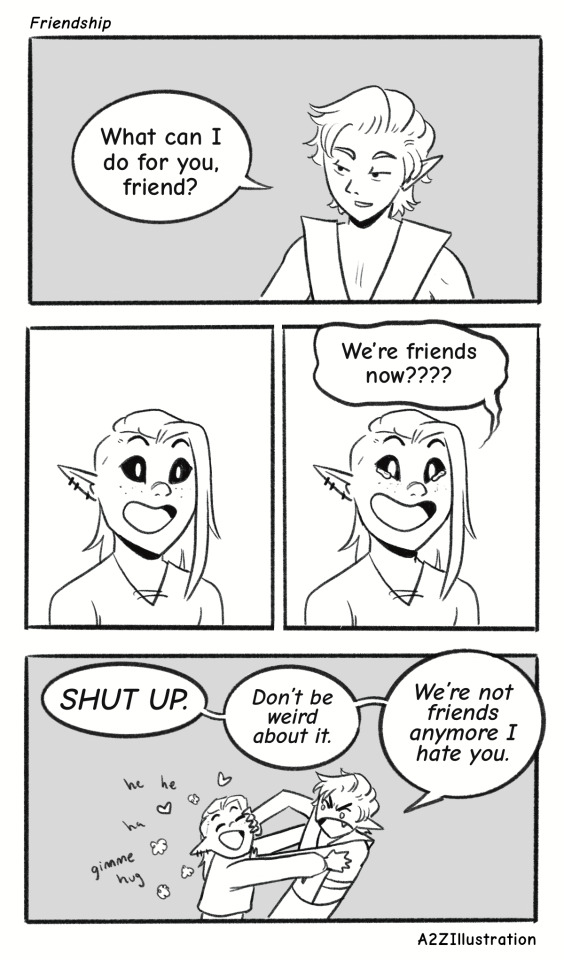
"Cat" is my favorite personality type
| First | | Previous | | Next |
[[ All Croissant Adventures (chronological, desktop) ]]
[[ All Croissant Adventures (app) ]]
#checking all my approvals in act 2 like I WILL make all you goofballs fall in love with me#bg3#baldur's gate 3#croissant adventures#tav#astarion#comics#in other news I'm trying to use the type tool in procreate for better speech bubble shapes and it's pain
1K notes
·
View notes
Text
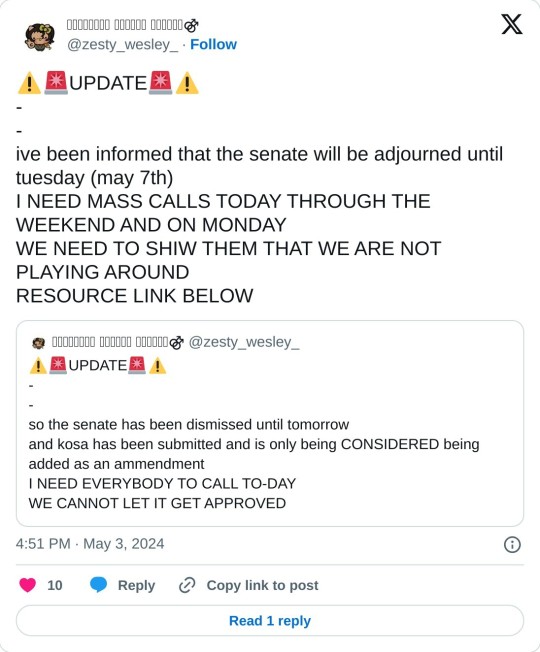
Senates adjourned until may 7th on a tuesday.
Get to calling through the weekend and monday.
We can clutch this!
#kosa#stop kosa#palestine#gaza#transgender#kosa bill#lgbtqia#lgbt#trans#internet freedom#internet censorship#us politics#bad internet bills#kids online safety act#stop kosa bill#free gaza#free palestine#free speech#freedom of speech#fandom#artists on tumblr#writers on tumblr#cats of tumblr#queer#fanfiction#fanart#internet culture#usa
768 notes
·
View notes
Text
Me, every time Paul screamed and/or used the Voice, or screamed while using the Voice:

#he reached MAN status in this one you know?#when he walks into the room to make the speech for the Fremen after having drank the poison he's like a giant his presence is just differen#seriously all the props to timothee chalamet it was all in his acting#dune#dune part two#paul atreides#timothée chalamet
442 notes
·
View notes